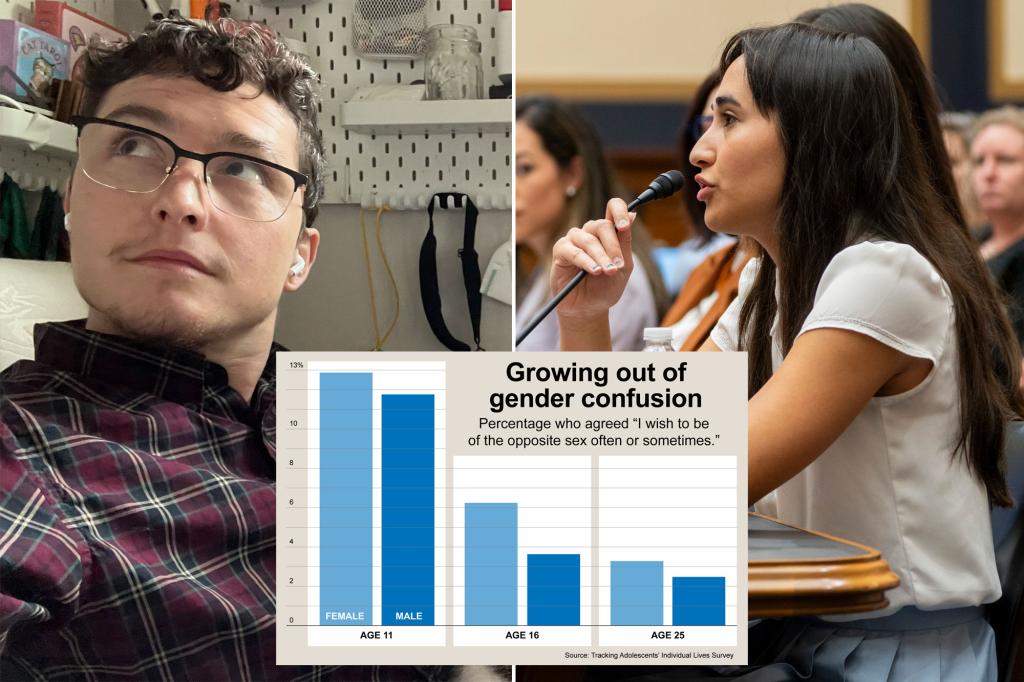Detransitioners are celebrating recent studies and policy changes that support their experiences. These individuals have transitioned from one gender to another and then returned to their birth sex. One study conducted in the Netherlands tracked 2,700 children over 15 years and found that the percentage of children struggling with their gender dropped significantly as they grew older, indicating that gender confusion may resolve itself with age. Detransitioners believe that these findings are validating their experiences and raising awareness about the potential risks of medical interventions for gender-confused youth.
An audit of England’s leading gender clinic, the Tavistock in London, revealed that troubled teens were being prescribed puberty blockers without sufficient medical evidence of their safety. As a result, doctors were instructed to stop prescribing these hormones to young people, with a focus on addressing wider mental health challenges rather than solely relying on medical interventions. This decision was welcomed by detransitioners, who believe that the medicalization of transgender youth has been a mistake and that more caution should be exercised when providing medical treatments.
Detransitioners, such as Airiel Salvatore and Chloe Cole, share their experiences of transitioning and then returning to their birth gender. They express agreement with the findings of the Dutch study, noting that many gender-questioning kids eventually become comfortable with their birth gender. However, they also highlight the ideological differences between Europe and the United States regarding the treatment of transgender youth. While England, Finland, Sweden, Norway, and Denmark have limited medical interventions for transgender youth, the US remains divided on the issue, with some states advocating for more liberal treatment options.
In the United States, the medicalization of transgender youth has become a contentious issue, with progressive states like New York and California positioning themselves as safe havens for trans kids seeking treatment. However, detransitioners believe that irreversible medical interventions for children should be banned nationwide. They argue that the process should be more cautious and consider the possibility of children desisting from their transgender identity as they grow older. Recent policy changes in Europe, such as the NHS halting puberty blockers for children, have sparked a reevaluation of medical practices in the United States.
The findings out of Europe have prompted a re-evaluation of the medicalization of trans youth in the United States. Detransitioners and mental health professionals believe that the focus should be on addressing wider mental health challenges and psychosocial issues rather than solely relying on medical interventions. Despite the slow progress in the US due to political and ideological differences, detransitioners are hopeful that there will be a nationwide ban on irreversible medical interventions for transgender youth.
Detransitioners, mental health professionals, and former NHS clinicians in England agree that political interference and ideological biases have played a role in the medicalization of transgender youth. Recent policy changes and studies are challenging the current approach to treating gender-confused youth, leading to a re-evaluation of medical practices in both Europe and the United States. The detransitioners believe that a more cautious and evidence-based approach is needed to ensure the well-being of transgender youth and to prevent unnecessary medical interventions that may have long-term consequences.


